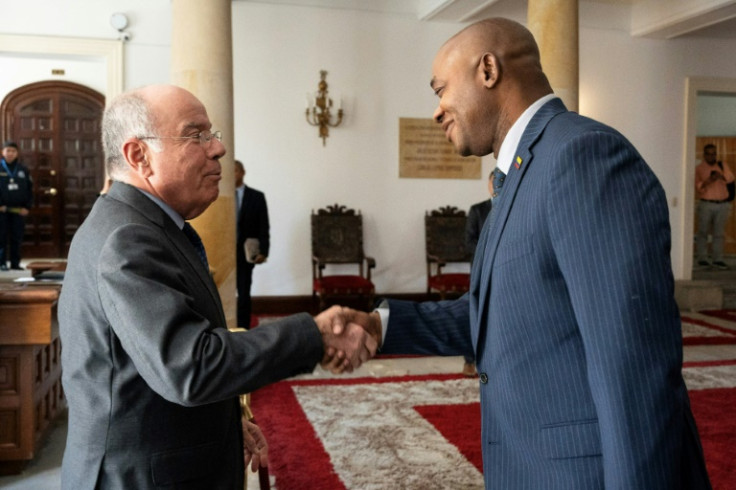US, Brazil, Colombia In Favor Of Fresh Venezuela Elections

The presidents of Brazil and Colombia, with US backing, called Thursday for fresh elections in Venezuela after international condemnation of last month's vote the opposition says strongman Nicolas Maduro stole.
The pair, who spoke on the phone Wednesday to discuss a possible "political exit" from Venezuela's post-election crisis, independently urged Maduro to consider a new vote.
From Washington, US President Joe Biden said he would support such a move, but Venezuelan opposition leader Maria Corina Machado said it would show "a lack of respect" for the popular will already expressed on July 28.
If Maduro "is sensible," said Brazilian President Luiz Inacio Lula da Silva, "he could try to appeal to the people of Venezuela, perhaps even organize elections."
Lula told a Brazilian radio station there should be "criteria for participation of all candidates" in a new election, which should "allow observers from all over the world."
For his part, Colombian President Gustavo Petro wrote on X that a political solution "that brings peace and prosperity" to Venezuela "depends on Nicolas Maduro."
He called for the lifting of all sanctions against Caracas, a "general national and international amnesty," "new, free elections" and a "transitional cohabitation government."
Also on Thursday, Colombia's Foreign Minister Luis Gilberto Murillo met with his Brazilian counterpart Mauro Vieira in Bogota.
Asked by a reporter at the White House whether he supported the idea of fresh Venezuelan elections, Biden replied: "I do."
But Machado, who was replaced by a proxy after being barred from seeking election by Maduro-friendly state institutions, told a virtual press conference that "to ignore what happened on July 28 shows a lack of respect for Venezuelans who have given everything."
She added: "The elections took place and Venezuelan society expressed itself in very adverse conditions where there was fraud and we still managed to win."
Venezuela's CNE electoral council proclaimed Maduro the winner of a third, six-year term, saying he won 52 percent of votes cast in last month's election, but it did not provide a detailed breakdown of the results.
The opposition says it has access to 80 percent of polling-station-level results which show that Edmundo Gonzalez Urrutia, a 74-year-old retired diplomat, defeated Maduro by a wide margin.
Gonzalez Urrutia and Machado have been in hiding since the president accused them of seeking to foment a "coup d'etat" and demanded they be jailed.
Anti-Maduro protests have claimed 25 lives so far, with dozens injured and more than 2,400 arrested.
Maduro's victory claim has been rejected by the United States, European Union and several Latin American countries.
Maduro has previously rejected the possibility of new elections and has asked the country's highest court, also viewed as loyal to him, to certify the outcome.
Lula said Thursday he does "not yet" recognize the CNE results.
Meanwhile Venezuela's assembly on Thursday will continue considering a slew of new laws critics say are meant to criminalize Maduro's opponents.
The measures would tighten regulations on the registration and funding of non-governmental organizations, which the regime has described as a "facade for the financing of terrorist actions."
National Assembly president Jorge Rodriguez has indicated he would also seek to ban future election observation missions from foreign countries.
Other legislative measures seek to increase government oversight over social media and to punish "fascism" -- a term often used by Maduro to tar critics.
The socialist president says social media is being used to attack him and to promote "hate," "fascism" and "division."
Last week, he banned social media site X for 10 days after its chief executive Elon Musk said Maduro had engaged in "major election fraud." The president has also promoted a boycott against WhatsApp.
The vast majority of 277 lawmakers in the single-chamber legislature are loyal to Maduro, who had warned of a "bloodbath" if he lost his reelection bid.
United Nations human rights chief Volker Turk and the Inter-American Commission on Human Rights have urged lawmakers not to pass laws they said would limit democratic freedoms.
Since coming to power in 2013, Maduro has presided over an economic collapse that has seen more than seven million Venezuelans flee the country, as GDP plunged 80 percent in a decade.
His reelection in 2018 was also rejected as a sham by dozens of countries.

© Copyright AFP 2025. All rights reserved.





















